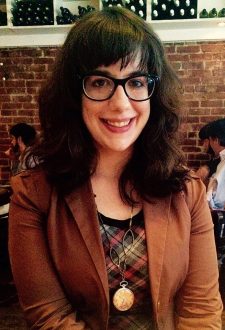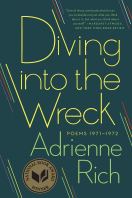In the Field: Conversations With Our Contributors–Jeanette Beebe
Tell us about your poem “[TK]” in Volume 22. How did it come to be?
“[TK]” is a broken sonnet. It’s dedicated to the journalists who kept working during and after the mass shooting at The Capital Gazette’s newsroom in Annapolis, Maryland on June 28, 2018. They “never stopped doing their jobs,” Matthew Haag and Sabrina Tavernise wrote in The New York Times the day after the tragedy. Four journalists — Gerald Fischman, Robert Hiaasen, John McNamara, and Wendi Winters — were killed alongside Rebecca Smith, a sales representative. The Capital Gazette later won a special Pulitzer Prize citation for “demonstrating unflagging commitment to covering the news and serving their community at a time of unspeakable grief.”
What excites you as a writer?
 The place of intersection between the two modes of writing that define my life — poetry and journalism; that’s what motivates me. To try to tell fully-formed nonfiction stories in journalistic verse. To try to write poems that do what journalism does. To try to make ‘the news’ accessible to people who’ve stopped paying attention to it, because it can seem endless and overwhelming. To write not just to figure it out, but to linger, to reveal.
The place of intersection between the two modes of writing that define my life — poetry and journalism; that’s what motivates me. To try to tell fully-formed nonfiction stories in journalistic verse. To try to write poems that do what journalism does. To try to make ‘the news’ accessible to people who’ve stopped paying attention to it, because it can seem endless and overwhelming. To write not just to figure it out, but to linger, to reveal.
What craft element challenges you the most in your writing? How do you approach it? What is your quirk as a writer?
Like my journalism, my poems work to investigate, to scoop, but they also get lost and meander, too. They weave in and out. And the way a poem works is a mystery. It’s so rarely a wrap-up, a nut-graf. The form of the things often reflects the emotion at its center. As Emily Dickinson wrote, “Tell all the truth but tell it slant.” If that’s what you sign on for, then you have to be patient. You have to trust that something is going to happen, that there’s a there there that you should wait for, and try to understand.
Do you practice any other art forms? If so, how do these influence your writing and/or creative process? 
I’m a stage-to-page poet who grew up in the slam poetry world. I’m also an audio journalist who works as a freelance reporter and recordist/producer. Together, these worlds have given me a deep respect for the spoken word. Because when we hear someone’s voice, we feel what they’re saying. Sound is crucial. It’s essential for explaining, and also for being understood — which is why many of us write in the first place.
What was an early experience that led to you becoming a writer?
 The first book of poems I ever owned was a reluctant gift — not stolen, technically — from my high school library in Iowa: Adrienne Rich’s Diving Into the Wreck. It was the mid-aughts. The card pasted to the first page of the book was stamped with its last reader: April 23, 1998. So it wasn’t a popular volume. But it mattered to me.
The first book of poems I ever owned was a reluctant gift — not stolen, technically — from my high school library in Iowa: Adrienne Rich’s Diving Into the Wreck. It was the mid-aughts. The card pasted to the first page of the book was stamped with its last reader: April 23, 1998. So it wasn’t a popular volume. But it mattered to me.
In my first semester at Princeton, I was lucky enough to speak with Rich for a good ten to fifteen minutes after she gave a reading on campus. It was magical. And I’d brought my copy with me. The first poem, “Trying to Talk with a Man,” is a clean page. But the second poem, “When We Dead Awaken,” is scrawled over with black pen: awkward, jotted stanzas of my own, on and on throughout the book. Half pen, half printed text.
Rich seemed surprised when she saw it. “You wrote in a library book?” she said. Yes, I nodded. And fortunately, my creative writing teacher, Ms. Karen Downing — the teacher who got me writing in the first place, the person who changed my life, forever — decided to simply give me the book after flipping through marked-up page after page.
“Do you mind that I wrote in it?” I asked. “I love people writing in my books,” she replied. “It shows that you actually read it.” With the good fortune of being the last person in line, I managed to ask her a few more questions about her own journey as a young poet. She recalled something from her time at Radcliffe that stayed with her. In a seminar, Theodore Morrison once quoted Chaucer’s “The Assembly of Fowls”: “The life so short, the craft so long to learn,” she said. When I sighed, she said, “You asked, and I told you.”
Jeanette Beebe was a finalist for the 2019 Iowa Review Award in Poetry and a semifinalist for the 2019 92Y Discovery Poetry Contest. A Best New Poets- and Pushcart-nominated poet and journalist, she holds an A.B. from Princeton, where she was lucky enough to write a thesis advised by Tracy K. Smith. Her poems have appeared or are forthcoming in Poet Lore, Bayou Magazine, Juked, New South, South Dakota Review, The Chattahoochee Review, After the Pause, Tinderbox Poetry Journal, and elsewhere. Her first publications were stage-to-page poems Xeroxed and stapled in chapbooks to support her hometown poetry slam in Des Moines, Iowa — a journey that led her to the Brave New Voices Youth Poetry Slam as a member of Minnesota’s inaugural team. She is based in New Jersey. You can learn more about her work at her website www.jeanettebeebe.com.

